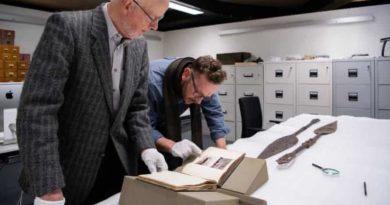New App To Tackle Adult Literacy And Support Vocational Education
The Citizen Literacy consortium and City of Glasgow College have teamed up to launch a prototype smartphone app that can help tackle adult literacy.
The project is funded by the UK innovation foundation, Nesta and Ufi Charitable Trust, which supports the use of technology in vocational education.
The app will aid adult literacy learners to practice at their own pace and in their own time, as well as supporting face to face teaching in the UK and beyond.
John Casey, Senior Learning Technologist at City of Glasgow College and Project Manager says, “We have released the first lesson (of 30) which introduces students and teachers to the app, giving them a chance to explore its interactivity and essentially test drive it. User feedback will guide our design and development activities and, of course, catch any potential bugs.”
The final version of the app will require no registration, have no adverts and no personal data will be recorded and it will also be free to use.
John adds, “The app is especially designed for low literacy users, so traditional text-driven interfaces are not used. It uses voice and handwriting recognition technologies for learner input, and features virtual tutor voices to provide information and directions to learners.”
Diane Gardner, Head of Applied Research in Adult Literacy at City of Glasgow College explains, “We wanted to make the app more inclusive. Current systems struggle with regional accents, so we adopted AI tools to tune the app to an individual user’s local accent. The prototype is being tested as far afield as Australia and Finland and feedback so far is extremely positive.”
The Citizen Literacy consortium developed the app which brings together leading literacy experts and software developers in the UK. It has grown from the City of Glasgow College’s successful programme, City Phonics, which offers a first step in literacy for the beginner adult learner.
Diane adds, “One in 28 people in Scotland are not able to progress because of a lack of literacy skills. Being able to read and write is the best thing in the world and it’s so very important. We need this ability to be able to do our jobs, to interact, to live our lives as fully as possible. Reading and writing opens up the world to people.”




